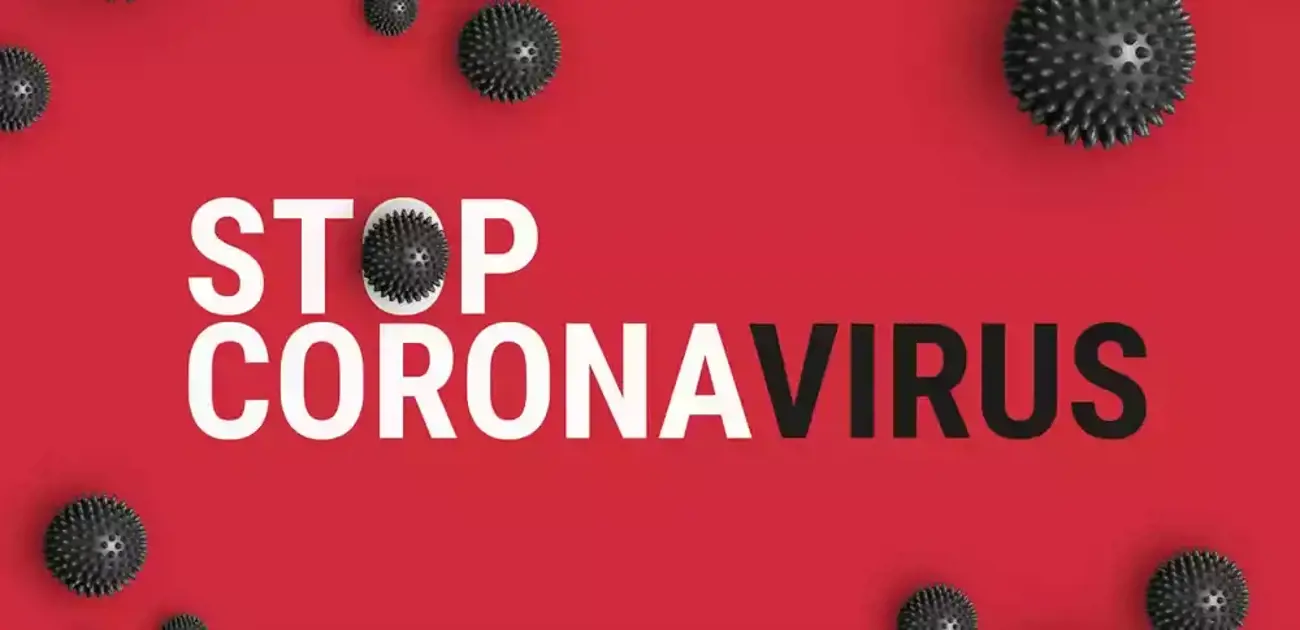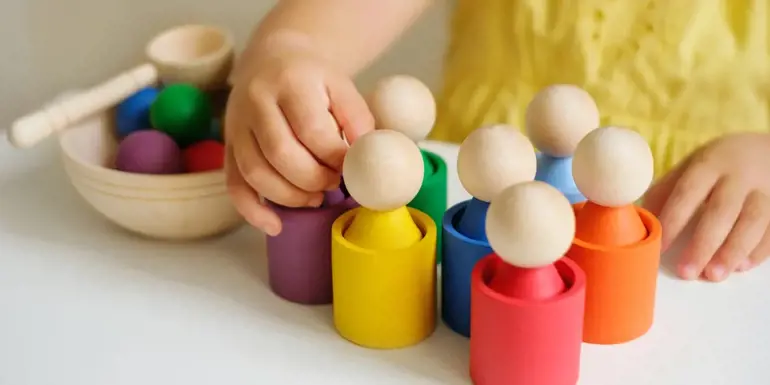As you'd be aware, COVID-19 (or novel coronavirus) is a new respiratory disease that's causing great concern around the globe. The World Health Organization is officially calling it a 'pandemic', our government is taking strong steps to limit the spread of COVID-19 on home soil, and early childhood education and care (ECEC) services are also taking this illness seriously.
A Queensland child care worker has tested positive to COVID-19, and NSW Health says that children are at the same risk of contracting COVID-19 as adults. Although they are more likely to have a milder illness (and some kids might not have any symptoms), they can still spread the disease.
As such, ECEC services are responding to the COVID-19 health emergency by:
- Staying informed and following the advice of government;
- Taking steps to protect people from infection; and
- Communicating regularly with staff, children and parents.
Let's look at what this means in practice, and see how COVID-19 can affect the operation of early childhood services and the payment of subsidies.
1. What information and advice is being provided to ECEC services?
The COVID-19 situation is changing by the day, and ECEC services are closely monitoring developments and following the official advice of government.
Federal, State and Territory departments are supporting services, and here are several reliable sources of information for educators and parents:
- The Department of Health website
www.health.gov.au is the go-to website for COVID-19 advice, information and resources. The Australian government publishes health alerts, practical guidance and up-to-date news, and its Facebook and Twitter accounts report developments as they happen.
- The National Coronavirus Health Information Line
This 24/7 phone service provides health and situation information on the outbreak. Just call 1800 020 080 (or 131 450 for translating or interpreting services).
- State and Territory Health Department websites
These agencies provide dependable localised COVID-19 information (including some State/Territory-specific hotlines). To find the phone number and website for your health department click here.
- The Department of Education, Skills and Employment website
- The Federal Government's FAQ contains information about COVID-19 and child care, and their fact sheets are helpful too. Provided they've signed up, ECEC services are also receiving COVID-19 communications from the Department.
- The Child Care Subsidy Helpdesk
This helpdesk supports services in managing the impact of COVID-19 on their business. To get assistance, services can call 1300 667 276, email ccshelpdesk@dese.gov.au or send an online query.
- The World Health Organization website
www.who.int contains current global news, with public advice, situation updates and media resources.
2. How are ECEC services taking steps to prevent the spread of COVID-19?
There's currently no cure for this illness, and it can be fatal in some cases. For these reasons, prevention is the best approach – with a focus on good hygiene and isolation, if necessary.
What health and hygiene practices are ECEC services using?
COVID-19 spreads when infected droplets pass from person to person through coughing, sneezing or direct close contact (including in the 24 hours before symptoms start showing). It can also be caught when a person touches an infected surface or object and then touches their mouth, nose or eyes.
To help prevent infection, ECEC services are following Department of Health advice and ensuring that:
- Everyone washes their hands frequently with soap and water, including when entering the service, before and after eating, and after toileting.
- Everyone covers their cough or sneeze with their elbow or tissues, then safely disposes of the tissues.
- People use alcohol-based hand sanitiser (ensuring that this is used and stored safely around children).
- Any sick person avoids contact with others. This means keeping a social distance of 1.5 metres and staying home if unwell.
- Frequently touched surfaces and objects are cleaned and disinfected, e.g. toys, doorknobs and change tables.
To reduce the chance of infection spreading, educators can also:
- Defer activities that lead to mixing between groups.
- Avoid queuing and hand holding.
- Open windows and adjust air-conditioning for more fresh air.
- Engage children in plenty of outdoor play.
- Promote the strictest hygiene when preparing food, eating and drinking.
- Cancel any planned activities outside the service, including visits to aged care homes or other large gatherings.
When should a child or staff member stay home?
One of the tricky things about COVID-19 is that it doesn't immediately show symptoms (and children might not get that sick at all).
As the illness progresses, symptoms include a fever, cough, sore throat, fatigue and shortness of breath. These signs can point towards a common cold or other respiratory illness, but in any event, children and staff should stay home if sick.
When it comes to excluding children or staff from an ECEC service, the Department of Education, Skills and Employment says that services should refer to the latest Department of Health advice when making the decision. And if a family refuses to comply with an ECEC service's exclusion requirements, the Department says, 'This is a matter for the individual early childhood education and care service to manage.'
That said, people must stay home if they've:
- Been diagnosed with COVID-19;
- Been in close contact with a confirmed case of COVID-19; or
- Returned to Australia from overseas.
These individuals have to self-isolate for 14 days, which means staying at home with the people they usually live with and not going to child care or anywhere else.
3. How are ECEC services communicating regularly with staff, children and parents?
The COVID-19 situation is developing by the day, and ECEC services should have a process to rapidly communicate with staff, visitors, families and local public health units (especially if someone is diagnosed with COVID-19).
Communications can be done electronically, verbally and via hard copy, and it's important to read/listen to any information the service provides you with, ask any questions you have, and ensure that your contact details are up-to-date.
It's also important that grown-ups discuss COVID-19 with children. Early childhood health and wellbeing specialist, Dr Alice Brown says, 'When parents and educators are talking to young children, especially those four and under, about COVID-19, it's about being honest and accurate, responding in a calm and reassuring way and ensuring the tone of your voice is calm.' Take the time to:
- Explain that COVID-19 is similar to a cold and that some children are getting sick, and adults are trying to protect others from getting sick.
- Reinforce the ways that we can protect ourselves and each other, e.g. by washing hands, covering coughs and staying away from sick people.
- Encourage your child to ask questions.
- Assure them that adults are here to protect them and keep them safe.
When will an ECEC service have to close because of COVID-19?
The Prime Minister, Scott Morrison has said that ECEC services are 'essential' gatherings and will remain open at this stage; however, there has been discussion around the best way forward if COVID-19 leads to widespread lock-downs.
The early childhood sector says services should be allowed to stay open to provide scaled back care with reduced numbers, in support of parents who work in jobs like health care and emergency services.
There is concern, though, that older educators are being put at risk when learning environments stay open. The risk of dying from COVID-19 rises to 3.6 per cent for over 60s, and some people would prefer to stay out of harm's way at home. Or at the very least, be thanked for putting themselves at risk to keep children cared for.
At the end of the day, the decision to close a service will be made, and communicated, by State and Territory Governments. Each health department will probably make the call, but the decision may come from their regulatory authority.
If an ECEC service closes (voluntarily or because it's told to do so), they must notify their State or Territory regulatory authority within 24 hours.
Already, some parents are keeping children home from care as a precautionary measure, and it's important to follow the advice of your ECEC service and do what feels right for your family.
How can COVID-19 affect child care payments?
When it comes to child care fees and subsidies, the Department of Education, Skills, and Employment confirms that:
- The Child Care Subsidy (CCS) and Additional Child Care Subsidy (ACCS) can only be paid where services are open and providing care (with the exception of public holidays or where a local emergency has been declared).
- If your child care service is open, but your family is experiencing temporary financial hardship (e.g., you can't work because of the COVID-19 outbreak), then the Additional Child Care Subsidy may help. Provided your family meets eligibility criteria, it can pay for up to 100 hours of child care per fortnight, for up to 13 weeks.
- If you take your child out of care as a precautionary measure against potential contact with COVID-19, then the CCS can be paid for up to 42 absence days, per child, per year without you having to show documentation.
Your child doesn't need to be ill – you can simply make the decision to keep them home and get help paying for the fees you're liable for.
Once your child's 42 absence days have been used up, the CCS can be paid for more absences, but you'll need to give a valid reason and show evidence, such as a medical certificate. Depending on your doctor, they might provide a medical certificate if your child isn't ill, but is being kept out of care as a COVID-19 precaution.
If you're keeping your child out of care for longer time, then plan for this with your service (with a Complying Written Arrangement) and remember that your child's enrolment will automatically end if they're away from care for 14 weeks.
- If an ECEC service closes because of COVID-19, then your family won't be charged any fees.
- If your child is excluded, or you choose to keep them home from care, then it's up to your individual ECEC service to decide whether or not to charge you child care fees.
It's important to plan for a closure by stocking up on everything you'll need for isolation at home (e.g., non-perishable/frozen food, medication, and entertainment for children). It's likely that you'll all be at home together if your ECEC service shuts, but if you're at work and your children aren't at care, you'll need to think about alternative child care options.
In summary, there is a lot of information available about COVID-19, and it's important to do your research and keep up-to-date with the rapid developments.
Always practice good hygiene, act on any expert advice you're given and prepare as well as you can for the future. It's important to keep an eye on your family, physically and mentally, and if you have any concerns, discuss these with your ECEC service, doctor, employer, health hotline, or government department.
Together, we must all prevent, prepare, and take care.



































